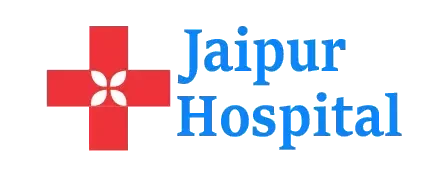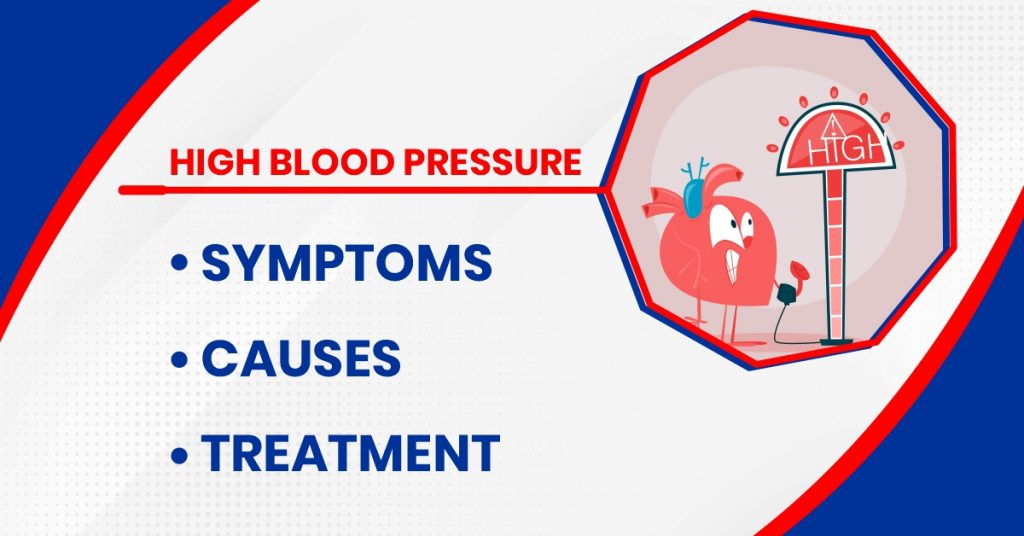The condition of high blood pressure (hypertension) poses a danger if left untreated. The disease can lead to strokes, heart failure, kidney failure, and other medical issues. You can lower your blood pressure by changing what you eat, exercising more, and taking your medicine.
What is Hypertension?
An artery is a blood vessel with a narrow lumen that creates more resistance for the blood to flow through. Your blood pressure will be higher if your arteries are narrow because there will be more resistance. High blood pressure can eventually lead to heart disease, among other health issues.
Hypertension is a common condition. The symptoms usually develop over several years. Usually, you may not even experience any symptoms. But even when there are no symptoms, high blood pressure can damage your blood vessels and organs, including the brain, the heart, the eyes, and kidneys.
Early detection is essential. Your doctor and you can identify any changes by taking regular blood pressure readings. You may be asked to check your blood pressure for a few weeks to find out if it stays elevated or if it drops to normal levels. This is because your blood pressure is elevated.
Hypertension can be treated with both prescription medications and healthy lifestyle changes. Health issues, including heart attacks and strokes, could result if the condition is not treated.
Symptoms and Causes of Hypertension:
Even when blood pressure readings reach dangerously high levels, most people with high blood pressure have no warning signs or symptoms.
Most people with high blood pressure don’t have specific signs and symptoms until the pressure has reached a life-threatening level, such as headaches, shortness of breath, and nosebleeds.
There is often no known cause of hypertension. The condition is usually caused by an underlying condition.
An individual who has high blood pressure without another condition or illness is considered to have primary hypertension. Secondary hypertension occurs when an underlying condition leads to elevated blood pressure.
Multiple factors can lead to primary hypertension, including:
- obesity
- insulin resistance
- high salt intake
- excessive alcohol intake
- adopting a sedentary lifestyle
- smoking
The causes of secondary hypertension are specific and it is a complication of another problem.
Chronic kidney disease (CKD) leads to high blood pressure since the kidneys are unable to filter fluid. As a result, blood pressure rises. It is also possible that chronic kidney disease leads to hypertension.
Hypertension can also be caused by the following conditions:
- Diabetic kidney disease and nerve damage caused by diabetes
- An adrenal gland cancer called phaeochromocytoma
- Cushing’s syndrome
- Cortisol-secreting adrenal glands are affected by congenital adrenal hyperplasia, a disorder of the glands
- The overactive thyroid gland is known as hyperthyroidism
- The condition of hyperparathyroidism affects calcium levels and phosphorus levels
- Pregnancy
- Sleep apnea
- Obesity
You can read also :Asbestosis: Causes, Symptoms, Risk Factors, Diagnosis, and Treatment
When to See a Doctor:
A routine medical appointment is likely to include taking your blood pressure. At least every two years, beginning at age 18, you should have your blood pressure checked by your doctor. Ask your doctor for a blood pressure reading every year if you are older than 40 or have a high risk of high blood pressure.
Generally, both arms of the body should be checked to determine if there are any differences in blood pressure. Make sure you use an arm cuff that is the appropriate size.
If you’ve been diagnosed with high blood pressure or have other cardiovascular risk factors, your doctor will likely recommend more frequent measurements. A blood pressure reading will be taken as part of a child’s annual checkup when he or she is 3 years old or older.
Those who don’t regularly see their doctors may be able to receive a free blood pressure screening at a health resource fair or another location in their community. Additionally, some stores have devices that measure your blood pressure for free.
Using public blood pressure machines, such as those at pharmacies, can give you some useful information, but they have some limitations. The accuracy of these machines is affected by a number of factors, including the size of the cuffs and proper usage. Be sure to consult your physician before using these machines.
How can you lower your risk of high blood pressure?
High blood pressure can be reduced through certain lifestyle choices. The following are some of them:
- Eat a healthy diet: Maintaining normal blood pressure requires a healthy diet. In the DASH diet (Dietary Approaches to Stop Hypertension), fruits, vegetables, and whole grains are included along with reduced amounts of sodium. The DASH diet makes it easier for people to consume less salt and sodium since it’s rich in fruits and vegetables, which are naturally low in sodium.
- Maintain a healthy weight: Maintaining a healthy weight goes hand-in-hand with a proper diet. A healthy blood pressure level can be achieved by losing excess weight through diet and exercise. Being overweight increases your blood pressure.
- Cut down on salt: You should consume less than 1,500 milligrams of sodium per day (about one teaspoon) in your diet. Avoid consuming too much salt to prevent hypertension. Remember that many processed and frozen foods as well as most restaurant meals (especially fast food) contain a lot of salt. Flavor your food with herbs and spices without salt; do not add salt to your food at the table. Substitutes for salt usually contain some salt.
- Being active: Physical activity (even walking) can reduce your blood pressure (and help you lose weight).
- Drink alcohol in moderation: Excessive consumption of alcohol (for women) or two drinks a day (for men) can raise blood pressure.
Treatments for High Blood Pressure:
The condition of high blood pressure will likely require lifelong treatment for most people to prevent or delay serious health issues.
Taking medications, incorporating additional lifestyle changes, and eating a healthy diet can all help manage high blood pressure. Stress management includes exercise, limiting alcohol intake, stopping smoking, and limiting alcohol intake.
Medication Options:
Treatment for hypertension is available in a variety of ways. By removing excess salt and fluid from your body, some medications lower blood pressure; others slow down heartbeats or relax and widen blood vessels.
Taking more than one drug in low doses is more effective for many people with high blood pressure than taking higher doses of a single drug.
One or more of the following drugs may be prescribed by your doctor depending on your past medical history and the severity of your hypertension:
- Diuretics: High blood pressure is typically treated with diuretics, sometimes called water pills. By lowering the amount of fluid flowing through the veins and arteries, this medication helps the kidneys rid the body of sodium and water.
- Beta-Blockers: Medication like this reduces heart workload and widens blood vessels. This causes the heart to beat slower and less vigorously. Blood pressure medications containing beta-blockers are often taken together.
- Angiotensin-Converting Enzyme Inhibitors (ACE Inhibitors): They function by relaxing blood vessels, increasing blood flow throughout the body, and reducing blood pressure.
- Angiotensin II Receptor Blockers (ARBs): Medications like these prevent certain hormones from affecting the heart and blood vessels. As a result, blood pressure stays low.
- Calcium Channel Blockers: These medications block calcium from entering the blood vessel cells, thus relaxing the blood vessel muscles.
- Renin Inhibitors: Drugs such as these increase blood pressure by slowing the production of the enzyme renin, produced primarily in the kidneys. When taken with ACE inhibitors or ARBs, Renin inhibitors should be avoided.
- Alpha-Blockers: They reduce blood pressure by stopping the contraction of arteries and veins caused by the hormone alpha-blocker.
- Alpha-Beta-Blockers: These drugs reduce blood flow by combining alpha- and beta-blockers.
- Central-Acting Agents: These drugs prevent the brain from sending signals that tell the heart to beat faster and the blood vessels to constrict.
- Vasodilators: They prevent the arteries from narrowing or tightening by relaxing the muscles surrounding the arteries.
Conclusion
High Blood Pressure is a silent yet serious condition that can gradually damage vital organs if not managed properly. Early identification of symptoms, understanding the causes, and following the right treatment approach are essential for long-term health. At a trusted Jaipur hospital, patients receive timely diagnosis and expert guidance for managing High Blood Pressure effectively. With regular monitoring, lifestyle modifications, and proper medical care, individuals can reduce complications and maintain better cardiovascular health.


